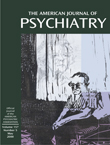This book discusses the many problems that beset blacks in the United States. Dr. Norman Brill, a distinguished psychiatrist at the University of California, delivers a candid presentation of opinions from several perspectives about how to explain the continuing social and economic misfortunes of African Americans in this country. One of the central messages may generate disagreement, which is that black people themselves are responsible for some of them. The existence of racism is not denied, but other problems, such as black-on-black crime, are said not to result from racism. Affirmative action is repeatedly criticized, not only in the chapter set aside for the topic. The argument that affirmative action programs encourage the maintenance of a mindset of victimization and hopelessness, ultimately weakening rather than strengthening black self-esteem, fueling white backlash, and Balkanizing the nation, may upset some black leaders. It should be especially thought-provoking in the light of the American Medical Association’s decision, in support of the National Medical Association, to actively oppose anti-affirmative-action laws.
Dr. Brill’s appraisal of many black leaders in chapters such as “Black Leaders in the Black Movement” and “Black Anti-Semitism” may be refreshingly frank in the opinion of some. He tailors his prose so as not to denounce openly those whom many would describe as demagogues. At the same time, it is apparent that his underlying message is that a substantial number of them are not only out of touch with mainstream black America but may even mislead black people into adopting ideological positions that impede rather than foster progress. Dr. Brill’s description of the issue reminded me of my own experience with this phenomenon as a freshman in the mid-1970s at a college of predominantly black enrollment in the southern United States. A guest lecturer (who, as I recall, had also written a book about being black in America) told us that the white man would never allow a black man to be a man in America. He had only three choices: he could be a clown, an athlete, or a noble savage. These corresponded to the prominent and often stereotyped roles that blacks typically held in entertainment, sports, and black churches. It begged the question of what on earth could we hope to accomplish.
Dr. Brill might have called this playing the race card, judging from the following statement in the chapter “Conflicting Opinions”: “To keep the winnings of victimhood, one must continue to play the victim and may, in time, imprison oneself in the politics of inferiority and irreconcilable differences which you are trying to overcome.”
Undoubtedly, some readers will find the chapter on solutions (“What Is the Answer?”) short on specifics. However, it is difficult to find fault with calls in this and subsequent chapters for strengthening the black family, improving primary education, and toughening law enforcement. A few may argue that Dr. Brill’s emphasis on developing more self-reliance by black people in educating and policing themselves may paradoxically do as much to Balkanize the nation as affirmative action and multiculturalism are said to do.
Dr. Brill’s book is a courageous and important beginning in the dialogue between races about the issues that continue to divide us. He dares greatly by presenting a number of issues about racism that many avoid discussing out of fear of being misunderstood. And he does it in an even-handed way.

